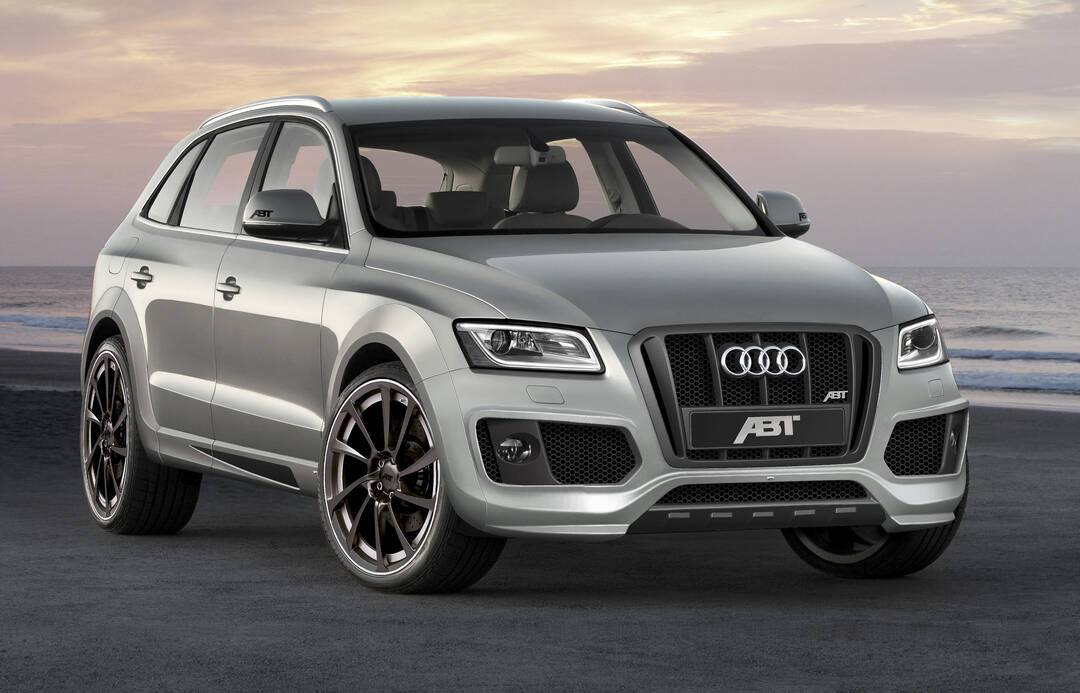It is a real winner – the Audi Q5. Even for the globally largest tuner of cars produced by the Volkswagen Group, this SUV is quite something special. It meets premium standards without showing off; the design is casual and elegant, timeless and assertive. That’s why it forms the basis for the ABT Sportsline art of engineering.
Currently, there are two basic diesel Audi Q5 versions available. ABT has an engine for every type of performance you may want. If you want a very torquey ABT QS5 because you love a sporty style of driving or want to carry a huge load, choose the 3.0 TDI: Its 630 Nm, after its ABT treatment, make it sort of invincible (standard version: 580 Nm). 282 hp (207 kW) make for more dynamism. In its serial version, this engine has 245 PS (176 kW). A true “saver” is the 2 liter turbo diesel, which after ABT’s intervention has 205 hp, up from 177 hp, or 420 Nm, up from 380.
The ABT QS5 also has a perfect design. The ABT exhaust system with its two double pipes shows the SUV’s origin, namely the renowned ABT company. We also recommend to use the CR and DR alloy wheels, available for this elegant SUV in sizes from 20 to 22 inches, as it befits its rank. The Audi Q5 by ABT looks impressive wherever you go, be it a golf course or a high-end ski resort. But this versatile sports car wants to be driven, which, needless to say, you can also tell simply by looking at it: the front grille and spoiler express self-confidence and standing, the fender extensions and door strip attachments dominance. The rear skirt set and rear wing stand for so much more than just a touch of sportiness.
To make the SUV easy to control, the ABT engineers also developed a fine-tuned package to lower the car’s CoG with suspension springs. After all, the new ABT QS5 is supposed to be fun on all the roads and tracks you may want to take.
official fuel comsumption ABT QS5, l/100km: combined 8,5 - 5,3; CO2-emission combined, g/km: 199 - 139;
